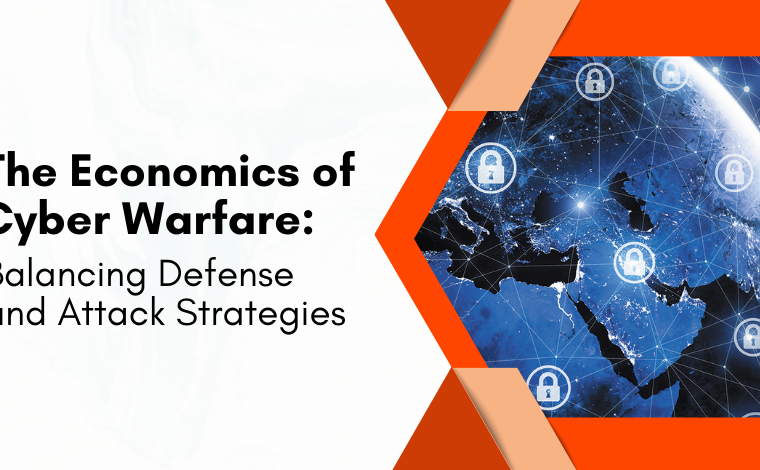Is Cybersecurity For Me? Cultivating a Stronger Digital Future

Stay Informed With Our Weekly Newsletter
Receive crucial updates on the ever-evolving landscape of technology and innovation.
Cybersecurity is a fast-growing field with opportunities for tech enthusiasts and those committed to safeguarding digital assets.
Whether you’re a recent graduate, an experienced information technology (IT) professional, or considering a career change, assessing if cybersecurity aligns with your goals is essential.
Read on to discover whether or not cybersecurity is right for you.
Understanding the world of cybersecurity

In our digital age, where cyber threats are prevalent, cybersecurity has become a paramount concern for individuals and organizations alike.
This field involves shielding computer systems, networks, and data from unauthorized access, theft, and damage.
Cybersecurity professionals work diligently to prevent cyber attacks, detect vulnerabilities, and respond to incidents to protect sensitive information while preserving the confidentiality, integrity, and availability of digital assets.
Essentials of cybersecurity
At its core, cybersecurity encompasses various domains, including network security, application security, information security, and cloud security. Familiarising yourself with these basics can provide insights into the diverse facets of this field and help you identify your interests.
- Network security involves safeguarding communication networks and implementing measures to prevent unauthorized access.
- Application security focuses on identifying and mitigating vulnerabilities in software applications.
- Information security aims to protect data’s confidentiality, integrity, and availability.
- Cloud security is concerned with securing cloud-based services and ensuring data stored in the cloud remains protected.
Key skills for success

Thriving in cybersecurity necessitates a specific skill set. While technical skills, including programming languages, network protocols, and security tools, are vital, honing soft skills can set you apart.
- Strong problem-solving and analytical skills help identify and resolve security issues.
- Effective communication and collaboration are crucial for working with diverse teams and stakeholders.
- Attention to detail and a proactive attitude are vital for preventing and mitigating cyber threats.
A day in the life of a cybersecurity specialist
Daily tasks for cybersecurity professionals can vary based on the organization, industry, and role. However, common activities include:
- Identifying vulnerabilities and monitoring systems.
- Developing and implementing security measures and policies.
- Conducting risk assessments and training employees.
- Investigating security incidents and breaches.
- Staying updated on industry trends and emerging threats.
Work environment and culture

Cybersecurity professionals have the flexibility to work in a wide range of industries, spanning from finance to healthcare, and within diverse organizations, including corporations, government agencies, and consulting firms.
While many professionals in this field work in traditional office settings, it’s worth noting that remote work opportunities are becoming more prevalent, offering a greater degree of flexibility and work-life balance.
Collaboration and teamwork are fundamental aspects of the cybersecurity profession.
Cybersecurity experts frequently collaborate with IT teams, business stakeholders, and external partners to ensure that security measures are effectively implemented and aligned with an organization’s overall goals and strategies.
This collaborative environment not only enhances the effectiveness of cybersecurity efforts but also fosters a sense of shared responsibility in safeguarding digital assets.
Benefits
One of the most compelling aspects of a career in cybersecurity is the high demand for professionals in this field.
With the increasing complexity and frequency of cyber threats, organizations across various industries are actively seeking cybersecurity experts to protect their digital assets.
This demand has created a robust job market, providing ample opportunities for career growth and development.
Challenges
On the flip side, a career in cybersecurity does come with its own set of challenges.
One of the most prominent is the need for continuous learning and adaptation.
The cybersecurity landscape is ever-evolving, with new threats and technologies emerging regularly.
Professionals in this field must stay updated with the latest trends, vulnerabilities, and attack techniques. This demands ongoing skill and knowledge updates to remain effective in their roles.
Education and training
Education and training are vital in preparing for a cybersecurity career. While requirements vary, common paths and certifications include:
- Degrees in related fields like computer science or cybersecurity.
- Certifications like Certified Information Systems Security Professional (CISSP), Certified Ethical Hacker (CEH), or Certified Information Security Manager (CISM) enhance credibility.
- Continuous learning through industry events, seminars, and training programs.
In conclusion
The job market for cybersecurity professionals is competitive, with diverse roles from entry-level to leadership positions.
Industries like finance and healthcare have high demand due to sensitive data, and whether you’re starting or transitioning, exploring cybersecurity can lead to a meaningful and impactful profession.
Career paths may include roles like security analyst, penetration tester, or security consultant, with opportunities for leadership as chief information security officer (CISO) or director of security operations.
If you’re interested in exploring these career options further, consider scheduling a career consultation with the Institute of Data to discuss your goals and chart a successful path in the dynamic field of cybersecurity.




